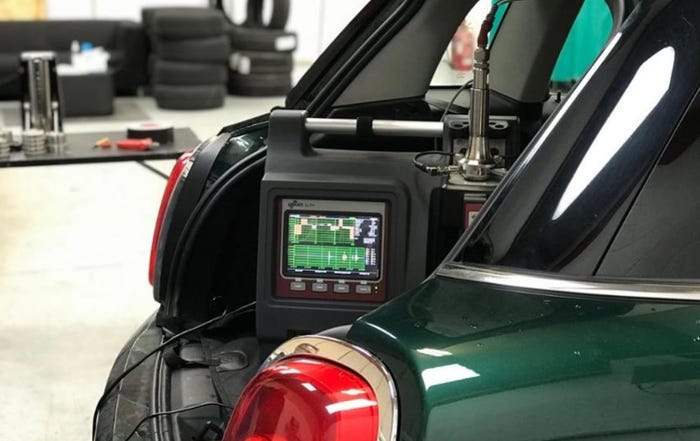Re-Importers Conspire to Buy U.S. Hyundai Genesis to Resell in Korea, Report Contends
The Donga Ilbo says the U.S. price tag will be more than 40% less for the U.S. model than in Korea, where it currently sells for 52.8 million won ($54,102).


A South Korean newspaper is reporting the new Hyundai Genesis sedan equipped with 3.8L V-6 engine will be priced at $32,000 when it launches in the U.S. market.
The newspaper says because the U.S. price will be drastically lower than the domestic market, maverick re-importers are conspiring to purchase the Genesis in the U.S. and ship it back to Korea to compete directly against Hyundai Motor Co. Ltd.
A Hyundai spokesman disputes the newspaper story, telling Ward’s no price has been set yet for the Genesis in the U.S., which will arrive in about three months.
The final price is a matter of continuing negotiations between Hyundai (America) and the parent company, he says, and “the 31.2 million won price quoted by the newspaper is purely speculative.”
The Donga Ilbo says the U.S. price tag will be more than 40% less than the Genesis in Korea, where it currently is being sold for 52.8 million won ($54,102).
Some re-importers are actively setting up arrangements with American wholesalers to purchase the Genesis and bring it back to Korea to sell to local consumers, the newspaper says.
One such re-importer reportedly has an arrangement to purchase 10 Genesis units in the U.S., to be followed by subsequent purchases.

Hyundai Genesis sedan to launch in U.S. this summer.
The Hyundai spokesman says there are valid reasons for the difference in pricing. “About 24% of the Genesis’ selling price in Korea is for taxes, which are based on engine displacement,” he says. “The Genesis is in the highest category.”
There also is a significant difference in specs for the Korean model compared with the U.S. version, which also makes the car more expensive.
“The Korean Genesis has a very expensive electronically controlled Continental Teves (AG) suspension that is not offered in the U.S.,” the spokesman says. “It adds significantly to the cost, and we feel U.S. customers would not be willing to pay for it.”
Overall marketing costs are significantly higher in Korea, as well.
“We operate many more stores, and Korean real estate is considerably more expensive,” he says, noting Hyundai has some 900 dealerships in Korea, compared with fewer than 700 in the U.S.
“We’re certainly not alone with respect to the Korea-U.S. price difference situation,” the spokesman says. “It’s very comparable to the Korea-U.S. price differences for a Lexus or a BMW 7-Series.
“You cannot expect Hyundai to have flat pricing in 180 countries. There will always be price differences, and people will always try to find ways to exploit the differences.”
Re-importing is a disruptive distraction not only in Korea but anywhere that unscrupulous individuals try to take advantage of market differences and exchange-rate fluctuations, he says. Such is the case for Hyundai in Europe.
However, the maverick re-importers likely will run into some difficulties.
“In order to successfully re-import a Genesis from the U.S. to Korea, the car would have to meet the Korean government’s specifications in all ways,” the spokesman says.
“There are differences in the instrument panel, which must have Korean-language instruments, and on all controls for the electronics and entertainment system.”
Additionally, the speedometer must read in kilometers; the stickers and badges must be in the Korean language; plus there are different colors for the taillamps and so on.
While emissions and safety requirements generally are the same in the two countries, consumers who buy a re-imported Genesis likely will want a Korean warranty.
“Generally, we would not honor a U.S. warranty in Korea,” the spokesman says. “We create these warranties for each country or region to suit the particular competitive environment. They’re not transferable from one region to another.
“This has been a very touchy issue for every manufacturer. We would have to deal with it on a case-by-case basis.”
Despite its steep price, the Korean Genesis is selling as fast as Hyundai can produce them. Close to 8,000 units were delivered in the first three months since the sedan hit the market in January.
“We sold almost 5,000 units in March, alone, as production ramped up,” the spokesman says. “We are now hitting our stride, and there (still) is a 2-month waiting period for deliveries.
“We are absolutely meeting our targets in Korea and expect to do the same in the U.S.”
About the Author
You May Also Like



